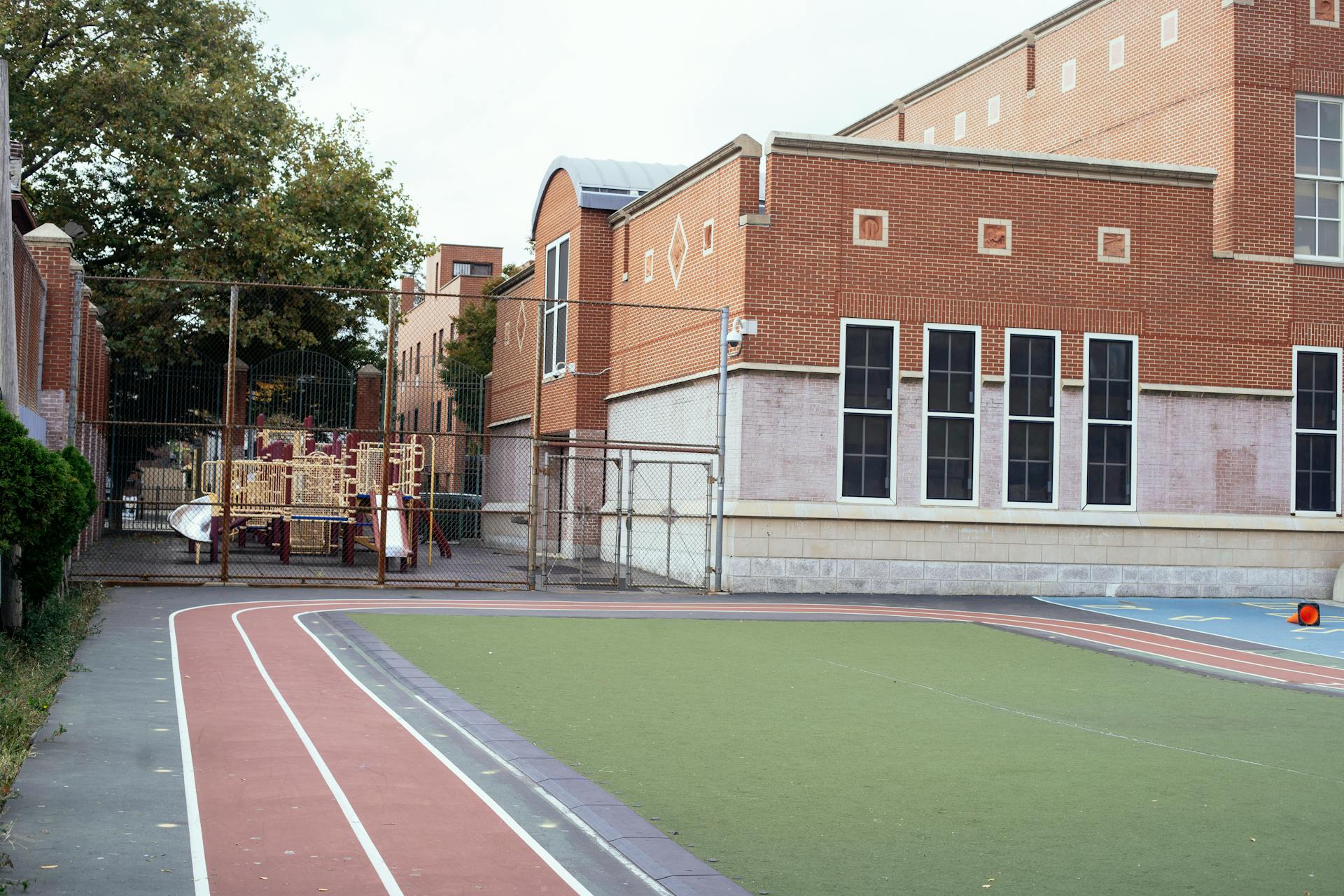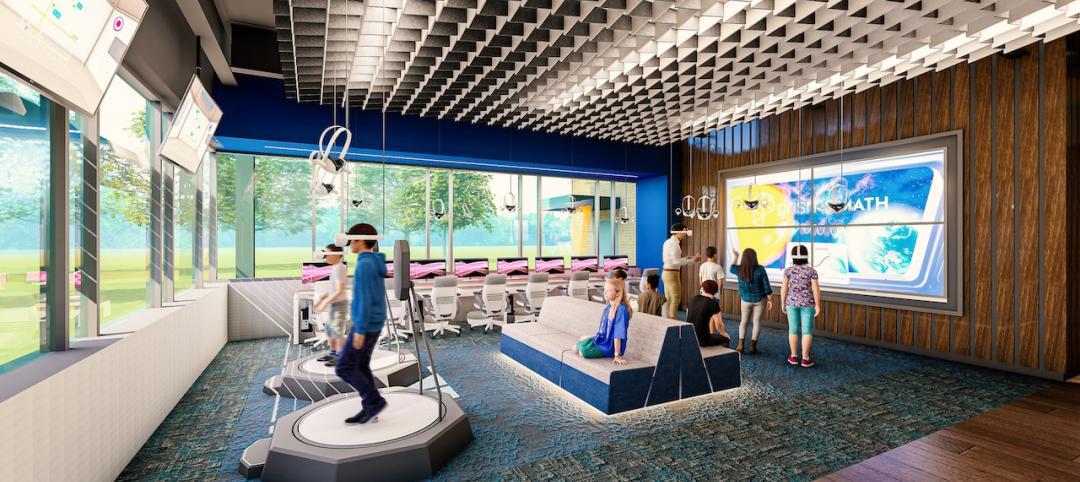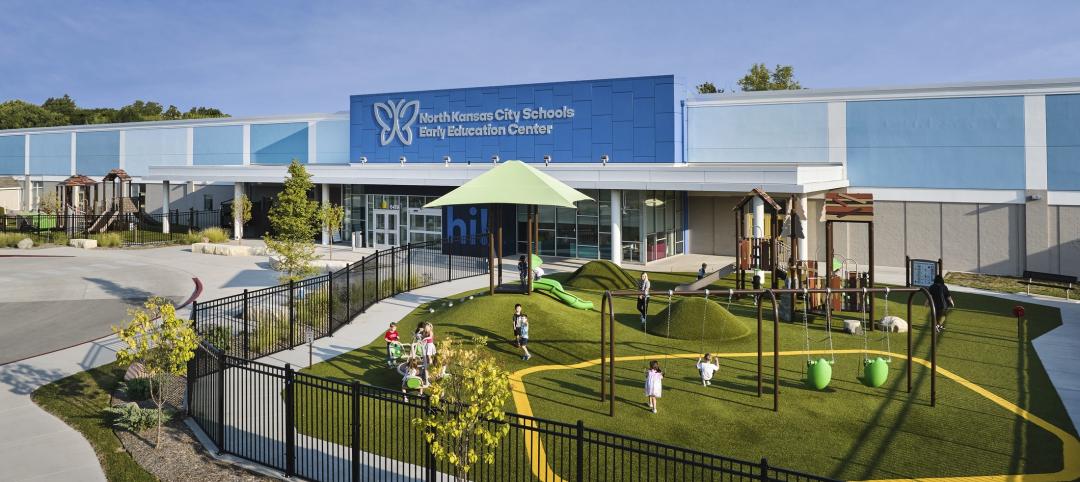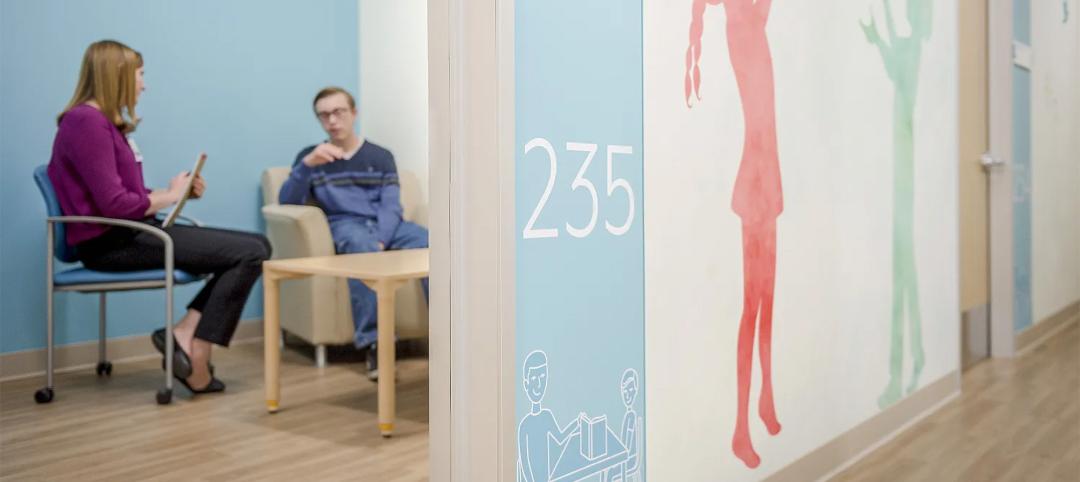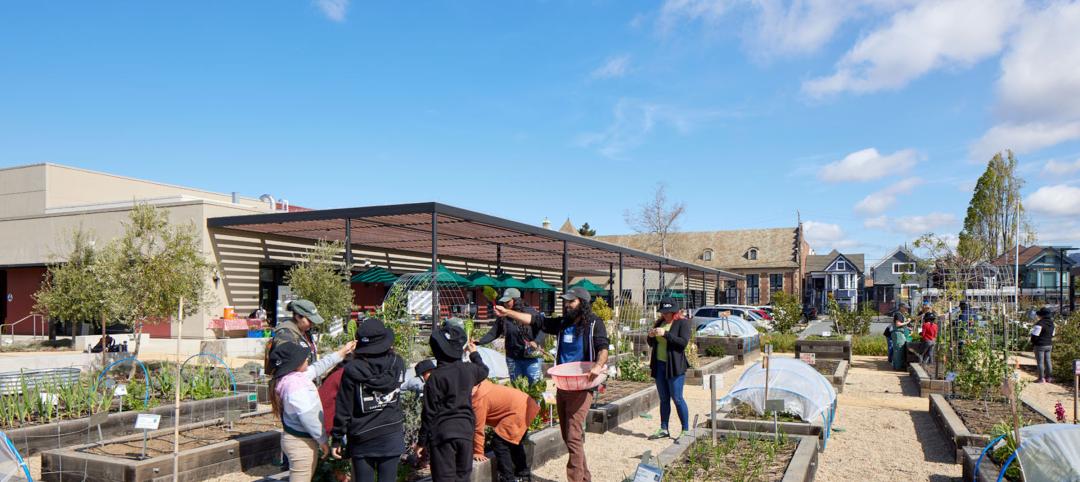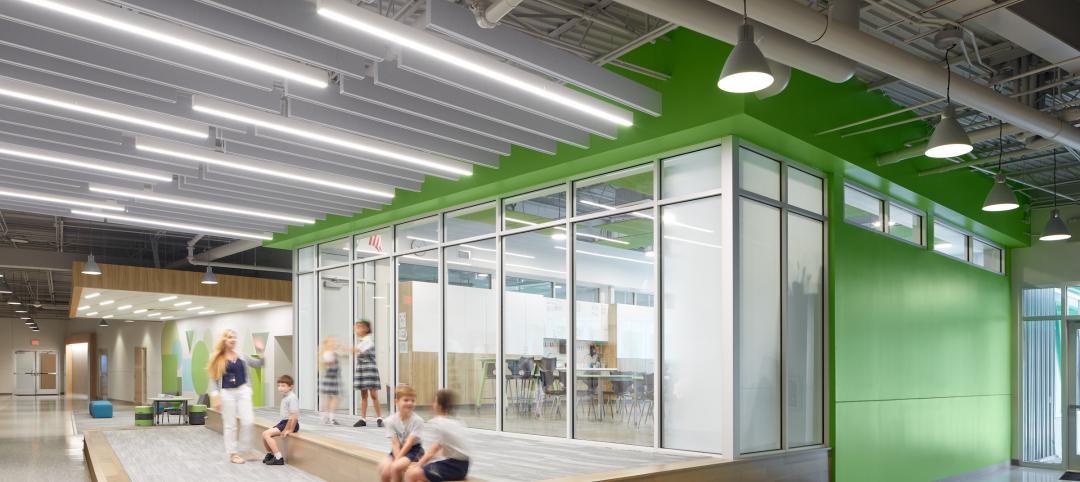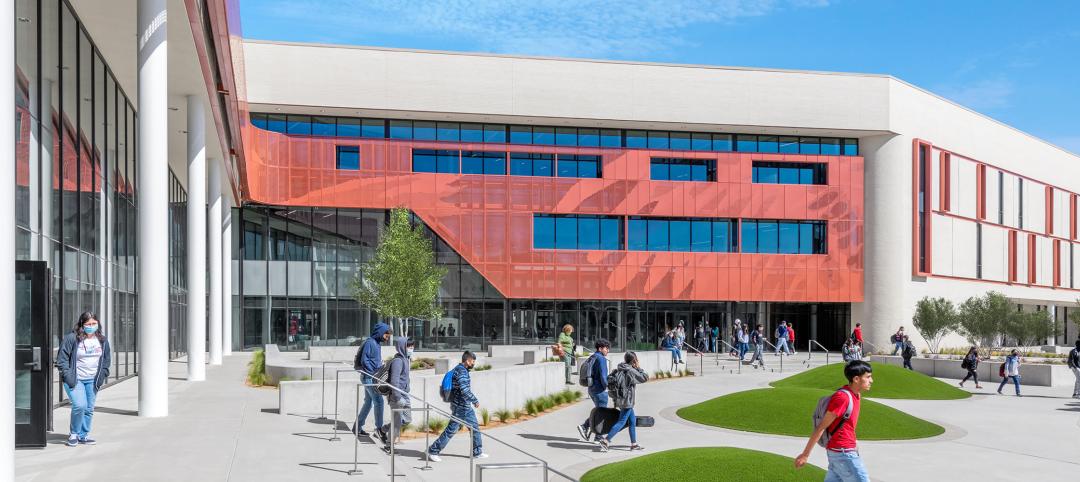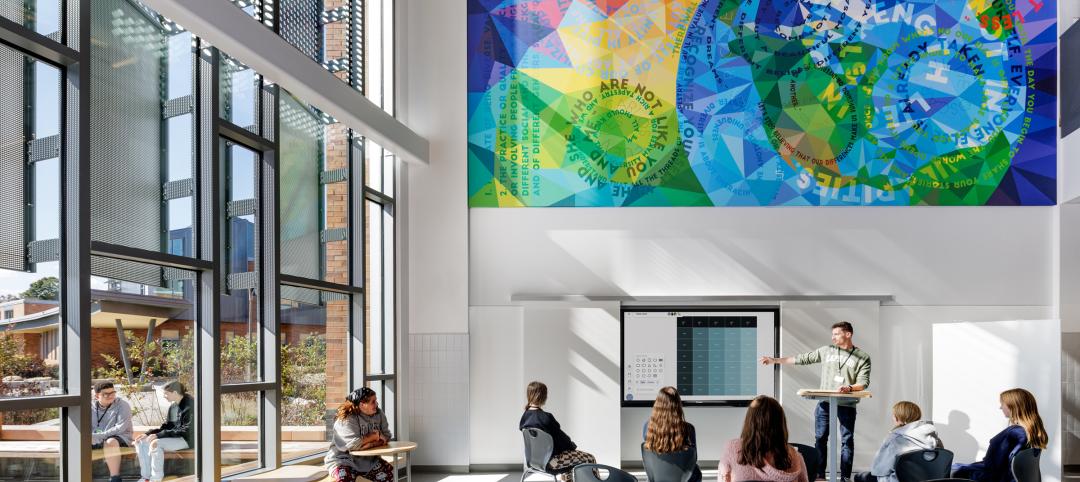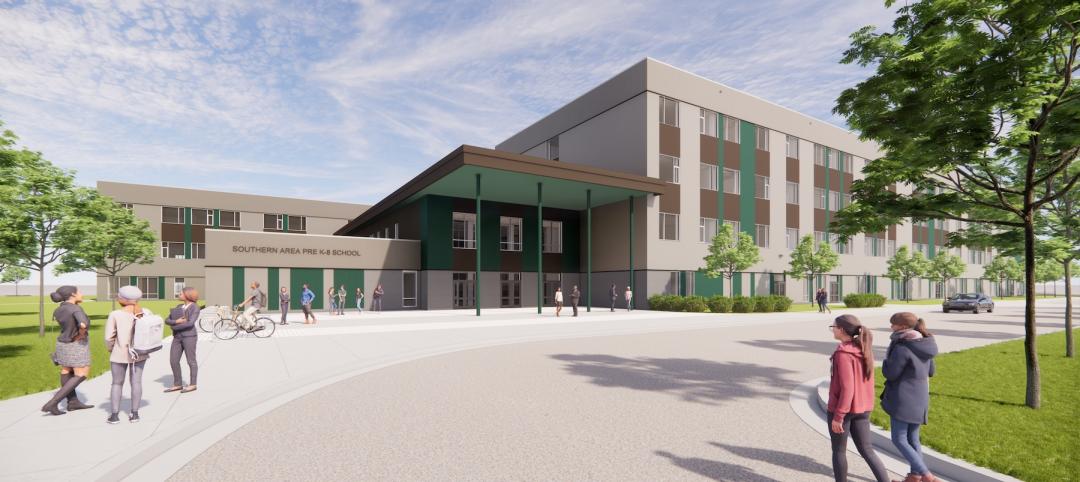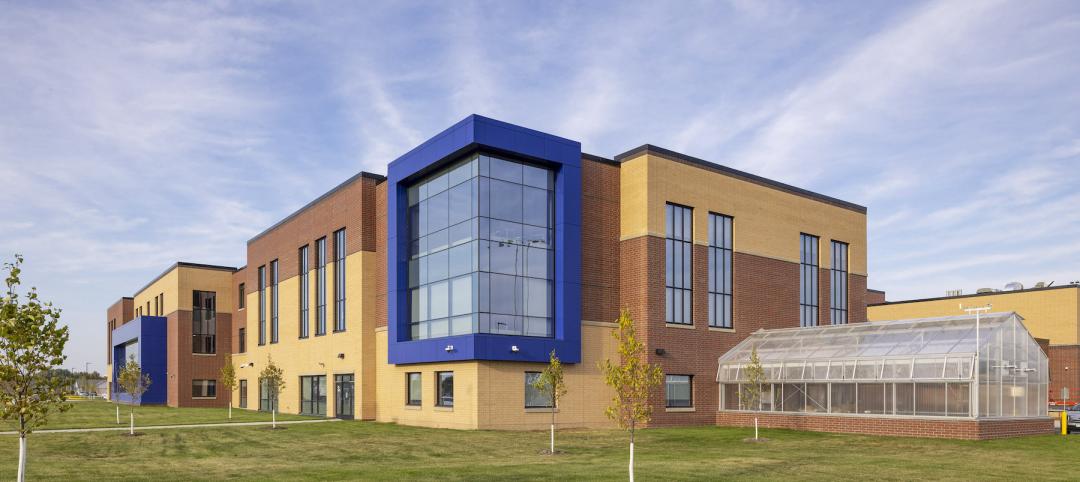The average age of a main instructional school building in the United States is 49 years, according to a survey by the National Center for Education Statistics (NCES).
About 38% of schools were built before 1970. Roughly half of the schools surveyed have undergone a major building renovation or addition. Of those that have been renovated, the average age of the renovation was 14 years.
Major repair, renovation, or modernization work was being performed in 21% of all public schools surveyed as of December 2023. Indoor air quality is a major focus for many schools, with 39% having an indoor air quality coordinator on campus. This position is responsible for monitoring air quality conditions at the school and reporting air quality issues and complaints.
Some 60% of schools have designated vehicle loading and unloading areas at least 25 feet from all building air intakes, including doors and windows. Eighteen % of schools have an anti-idling program that includes signage and active monitoring during pick-up and drop-off times.
Some 31% of public schools have one or more non-permanent (portable) buildings in use.
Here are other findings from the NCES public school building survey:
The average age of the main instructional building is 49 years old. The following %ages of reporting public schools’ main instructional buildings were built during the following time periods:
- Pre-1970: 38%
- 1970 – 1999: 21%
- 2000 – present: 20%
Nearly all public schools (93%) reported having some kind of athletic amenities on-site. The most commonly reported types of facilities were:
- A gymnasium (69%)
- All-purpose grass field (68%)
- Outdoor basketball court (56%)
- Baseball/softball field (38%)
- Weight room (29%)
- Outdoor track (28%)
Most public schools have dedicated library space available (89%).
Compared to the national estimate (89%), higher percentages of public schools with the following characteristics reported having dedicated library space available:
- With 500-999 students (96%)
- With a student body made up of 0-25% students of color (96%)
- In rural areas (94%)
- With 300-499 students (93%)
- Elementary schools (93%)
- In low-poverty neighborhoods (92%)
Compared to the national estimate (89%), lower percentages of public schools with the following characteristics reported having dedicated library space available:
- In cities (84%)
- In high-poverty neighborhoods (81%)
- With a student body made up of 76% or more students of color (80%)
- High/secondary schools (80%)
- With 0-299 students (77%)
Related Stories
K-12 Schools | Jan 25, 2024
Video: Research-based design for K-12 schools
Two experts from national architecture firm PBK discuss how behavioral research is benefiting the design of K-12 schools in Texas, Florida, and other states. Dan Boggio, AIA, LEED AP, NCARB, Founder & Executive Chair, PBK, and Melissa Turnbaugh, AIA, NCARB, Partner & National Education & Innovation Leader, PBK, speak with Robert Cassidy, Executive Editor, Building Design+Construction.
K-12 Schools | Jan 8, 2024
Video: Learn how DLR Group converted two big-box stores into an early education center
Learn how the North Kansas City (Mo.) School District and DLR Group adapted two big-box stores into a 115,000-sf early education center offering services for children with special needs.
Designers | Jan 3, 2024
Designing better built environments for a neurodiverse world
For most of human history, design has mostly considered “typical users” who are fully able-bodied without clinical or emotional disabilities. The problem with this approach is that it offers a limited perspective on how space can positively or negatively influence someone based on their physical, mental, and sensory abilities.
Education Facilities | Nov 9, 2023
Oakland schools’ central kitchen cooks up lessons along with 30,000 meals daily
CAW Architects recently completed a facility for the Oakland, Calif., school district that feeds students and teaches them how to grow, harvest, and cook produce grown onsite. The production kitchen at the Unified School District Central Kitchen, Instructional Farm, and Education Center, (“The Center”) prepares and distributes about 30,000 meals a day for district schools lacking their own kitchens.
Products and Materials | Oct 31, 2023
Top building products for October 2023
BD+C Editors break down 15 of the top building products this month, from structural round timber to air handling units.
Giants 400 | Oct 30, 2023
Top 170 K-12 School Architecture Firms for 2023
PBK Architects, Huckabee, DLR Group, VLK Architects, and Stantec top BD+C's ranking of the nation's largest K-12 school building architecture and architecture/engineering (AE) firms for 2023, as reported in Building Design+Construction's 2023 Giants 400 Report.
Giants 400 | Oct 30, 2023
Top 100 K-12 School Construction Firms for 2023
CORE Construction, Gilbane, Balfour Beatty, Skanska USA, and Adolfson & Peterson top BD+C's ranking of the nation's largest K-12 school building contractors and construction management (CM) firms for 2023, as reported in Building Design+Construction's 2023 Giants 400 Report.
Giants 400 | Oct 30, 2023
Top 80 K-12 School Engineering Firms for 2023
AECOM, CMTA, Jacobs, WSP, and IMEG head BD+C's ranking of the nation's largest K-12 school building engineering and engineering/architecture (EA) firms for 2023, as reported in Building Design+Construction's 2023 Giants 400 Report.
K-12 Schools | Oct 21, 2023
The Blueprint Schools Program in Maryland reins in construction time and cost
This collaborative P3 is also committed to expanding participation of small and minority businesses.
K-12 Schools | Oct 4, 2023
New high school in Minnesota provides career pathways for students
This 90-acre school campus also features myriad sports facilities.


